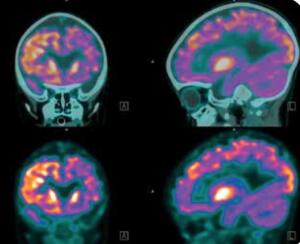by
Lauren Dubinsky, Senior Reporter | November 14, 2016

Courtesy of Intermountain Medical
Center Heart Institute
Atrial fibrillation patients with a history of stroke have a high risk of recurrent strokes, but those who undergo catheter ablation lower their risk by 50 percent. Those are the results of an Intermountain Medical Center Heart Institute study that was presented at the American Heart Association's Scientific Session in New Orleans this past weekend.
Medication is usually used to treat atrial fibrillation, but when that isn't effective the patient will have to undergo catheter ablation. The procedure creates scar tissue in the upper left atrium of the heart that prevents rapid, chaotic electrical currents from causing an abnormal rhythm.
The study included 140 patients with a history of stroke who underwent their first catheter ablation. They were compared to two other patient groups — 416 atrial fibrillation patients with a history of stroke who didn't receive catheter ablation and 416 stroke patients who didn't have atrial fibrillation.



Ad Statistics
Times Displayed: 120958
Times Visited: 6963 MIT labs, experts in Multi-Vendor component level repair of: MRI Coils, RF amplifiers, Gradient Amplifiers Contrast Media Injectors. System repairs, sub-assembly repairs, component level repairs, refurbish/calibrate. info@mitlabsusa.com/+1 (305) 470-8013
Over the course of five years, the researchers monitored all of the patients for recurrent outcomes of stroke, heart failure and death.
They found that those patients who underwent a catheter ablation to treat atrial fibrillation had less of a risk of having another stroke than those who didn't undergo catheter ablation.
The stroke rates of atrial fibrillation patients who underwent an ablation procedure were similar to those without a history of the condition.
"As physicians, we spend a lot of our time and energy trying to prevent stroke, this study helps us understand better how our management approaches can alter stroke risk," Dr. Jared Bunch, lead author of the study, said in a statement. "Our research shows that more aggressive treatment of atrial fibrillation by using catheter ablations will reduce the chances a person will have a life-threatening stroke."

